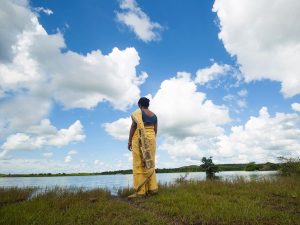The thing about fossil fuel companies is that they are just so damn predictable. It’s only a week on from the Labour government’s decision to drop a legal defence in a key legal challenge against Rosebank and Jackdaw oil and gas fields. Already however, the fossil fuel firms behind the projects are dusting off their deep pockets to fight the cases in the government’s stead.
That week of corporate climate criminal comeuppance was nice while it lasted.
Rosebank and Jackdaw: fossil fuel companies to forge ahead
In June 2022, the UK’s oil and gas regulator, the North Sea Transition Authority, gave the greenlight to Shell to develop the Jackdaw gas fields in the North Sea. the Following this, in September 2023, it granted the license for Equinor and Ithaca Energy to develop the notorious Rosebank oil and gas field.
Environmental groups took their fight against these climate-wrecking projects to the courts. Firstly, Greenpeace, filed a legal challenge against the government’s approval of the Jackdaw gas field in 2022.
Then, in December 2023, Greenpeace and campaign group Uplift launched another judicial review against the government over Rosebank. Crucially, this sought to overturn the government’s decision to give the go-ahead to the gargantuan polluting project.
The Tory government chose to defend its decision in the cases. However, on 29 August, climate campaigners celebrated a momentous development in the case. Specifically, the new Labour government gave up the former administrations battle – dropping its defence in the case.
Unsurprisingly however, this isn’t the end of it.
Sham of energy security
The Canary pointed out that Labour ditching the former Tory government’s defence wasn’t a death knell for the two projects. All it really meant was that the companies would need to redo their environmental assessments. Then, the new energy secretary Ed Miliband would decide whether to approve these.
We highlighted some of the issues with this, not least that Labour has repeatedly openly assured the two fossil fuel supermajors that it’d honour their licences the Tory government had awarded them.
But perhaps the biggest issue was what the fossil fuel companies would do. We explained that the climate destructive corporations could in fact still defend the case.
Like oily clockwork, the fossil fuel majors are greasing their gears to do just that. As the Guardian reported:
Shell and Equinor have said that they will defend their plans to develop new North Sea projects despite Labour’s decision to withdraw government support for the plans, which were approved by the Conservatives over the last two years.
All climate activists together now: FFS FFFs (For fucks sake fossil fuel firms!)
Or if you prefer: WTS (What the Shell?!)
Painful acronyms aside, climate justice campaigners are rightly bracing to fight back:
BREAKING: Equinor is reportedly defending the legal challenges against Rosebank.
Now our court case is a straight up fight between us and the oil & gas industry.
Bring it on✊ pic.twitter.com/YU78rOUDJJ
— #StopRosebank (@StopCambo) September 5, 2024
Let’s win this !#StopRosebank https://t.co/xq1JNpltVF
— Extinction Rebellion Horsham (@HorshamXR) September 5, 2024
Subtitle
Exasperatingly, the Guardian’s news report made the decision to sign off its article with a comment from an Equinor spokesperson.
The Canary has highlighted the issue before with this journalistic practice of giving the powerful the last word. In this instance, the reader leaves with the impression that Rosebank:
is a vital project for the UK in terms of investment, job creation and energy security
Of course, this is palpable bullshit and Equinor knows it. The Canary has also spelled out why in simple terms before:
UK offshore oil and gas does not automatically supply UK demand. Instead, like all oil and gas, it goes on the international market. On top of this, a recent Uplift analysis highlighted that during the last six licensing rounds since the Tories took power in 2010, new blocks have produced just 16 days worth of gas.
So, in other words, dragging up more domestic fossil fuels simply doesn’t mean more so-called ‘energy security’.
In fact, here’s Miliband schooling fossil fuel-funded Reform MP Richard Tice just this week on this basic fact:
Watch Ed Miliband school Richard Tice on clean energy Vs fossil fuels.
“The only way to get off the roller coaster of international gas markets & take back control… is to become a clean energy superpower.” pic.twitter.com/F8dFe65RRa
— Haggis_UK 🇬🇧 🇪🇺 (@Haggis_UK) September 3, 2024
A poster on X emphasised the sham of ‘energy security’ when the world already HAS enough fossil fuels anyway:
Absolutely shameless conduct by fossil fuel companies.
Claims of energy security are false. @IEA has done the work: world has pathway to net zero by 2050 that necessitates *NO NEW FOSSIL FUELS!*https://t.co/3PCHEESP8u https://t.co/01MnzXMg5U
— T🌏M (@UrbanLorax) September 5, 2024
But just what is a multibillion fossil fuel company to do when it has poured its bumper profits into burgeoning them further? At least, Shell wants you to get out your tiny violin for it. Its spokesperson argued that:
Jackdaw is a vital project for UK energy security that is already well under way. Stopping the work is a highly complex process, with significant technical and safety issues now that infrastructure is in place and drilling has started in the North Sea.
Translation: spare a thought for us parasitic profiteers, we’ve thrown too much money at it to stop now. Quite frankly, the climate justice community couldn’t give crap about its wasted thousands that amounts to chump change for the staggeringly rich corporation.
Here’s an idea, some of Shell CEO Wael Sawan’s eye-watering £8m in dividends for 2023 could go towards plugging up its planet-polluting project in the North Sea. Needless to say of course, it’ll easily find some pocket change down the back of the sofa for this legal challenge.
Feature image via the Canary




